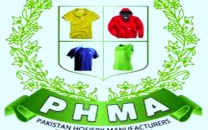Marine pollution threatens blue economy
Bodies formed to fast-track sewage treatment projects as Karachi discharges 472m gallons of wastewater daily

Federal Minister for Maritime Affairs, Muhammad Junaid Anwar Chaudhry, has warned that marine pollution poses a severe threat to Pakistan's blue economy. It harms biodiversity, fisheries, and tourism while also contributing to climate change, economic loss, and public health risks.
According to an official statement, the minister issued this warning while chairing a meeting of the Marine Pollution Control Board. Representatives from all relevant ministries and departments were present.
To address the crisis, two committees were formed to identify key issues and submit reports within 20 days. These will focus on the Sewage Treatment Plant-III (STP-III) and the Combined Effluent Treatment Plant (CETP), both aimed at treating industrial and municipal wastewater.
The minister expressed displeasure over a 15-year gap in board meetings and directed that regular sessions now be held. He also called for a comprehensive public awareness campaign and urged stakeholders to engage the public in tackling marine pollution.
He stressed the need for strict enforcement of environmental laws under the Merchant Shipping Ordinance and the Pakistan Environmental Protection Act, with heavy penalties for violators.
Chaudhry advocated expanding SEPA's powers to ensure effective regulation. He stated that up to 90% of land-based marine pollutionmainly untreated sewage and solid wastecould be prevented with targeted measures.
He highlighted the far-reaching impacts of pollution, including contaminated seafood, declining fish stocks, lost tourism revenue, and erosion of coastal infrastructure. He also warned of marine habitat destruction and possible species extinction.
Sea-based pollution, such as ship waste, ballast water discharge, offshore drilling, fishing operations, and shipbreaking, contributes about 10% to overall marine pollution. The minister urged the Karachi Port Trust (KPT) and maritime authorities to enforce stricter controls.
Officials briefed the minister on Karachi's alarming pollution levels. The city releases over 472 million gallons of sewage daily, including nearly 100 million gallons of industrial waste. This flows into the Lyari and Malir rivers, eventually reaching the Arabian Sea.
Solid wasteincluding plastics, recyclables, and biodegradable materialsis dumped near coastal zones, worsening marine degradation.
Proposed solutions include installing nets on stormwater drains, fencing rivers, and removing floating trash from harbours. The statement also urged expediting the completion of the Sewerage Treatment Project and building new plants in critical areas like Manora, Baba Bhit, Kalri, and Phitti nullahs.



















COMMENTS
Comments are moderated and generally will be posted if they are on-topic and not abusive.
For more information, please see our Comments FAQ